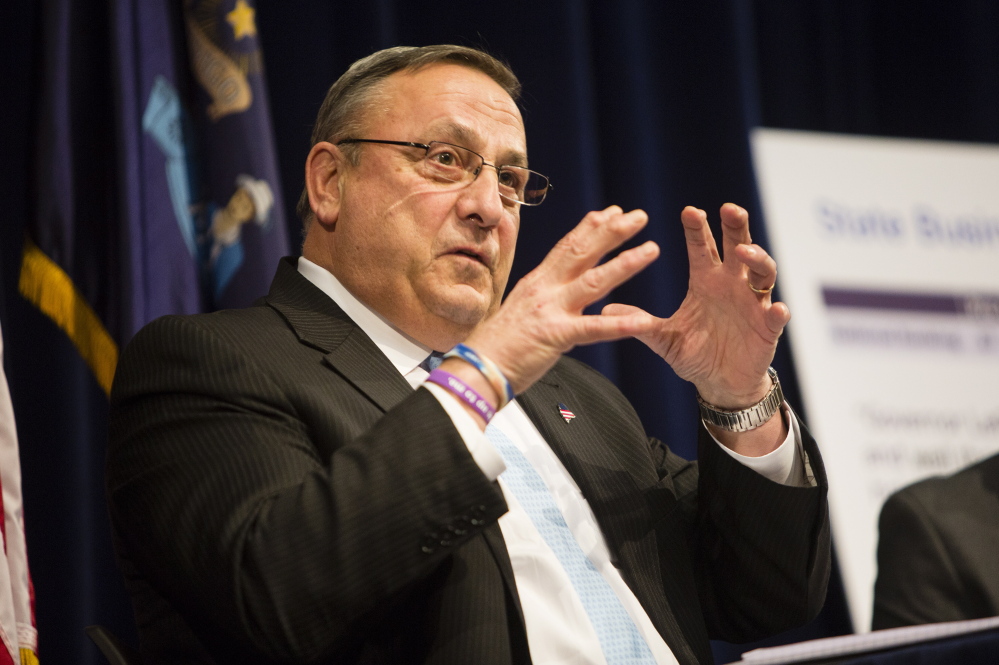Maine’s infrastructure is in tough shape. Roads, bridges, National Guard armories and public institutions of higher education are all showing their age, and they’re among the two dozen projects that will benefit from the planned sale next week of $112 million in state bonds.
But too many of the projects funded by the bond sales could have gotten underway much sooner: They’ve all been approved in statewide votes, some as far back as 2010, according to information provided to the Portland Press Herald on Thursday by the state treasurer’s office. The LePage administration should be prepared to explain why it has sat on these projects rather than fulfilling its obligation to the voters of Maine.
The most timely funding is being directed toward Maine’s transportation infrastructure: road construction and bridge repairs, as well as facilities, equipment and acquisition of property related to ports, harbors, marine transportation, aviation, railroads, public transit, and bike and walking trails.
The transportation bond issue, which was approved last November, is moving ahead – and rightly so, considering the poor condition of much of our transportation system. However, equally worthy – and older – proposals are only just poised to benefit from next week’s bond sale. Upgrades to Maine National Guard armories, many of which were built in the 1950s, were approved in 2013. So were funds for renovations and new construction to the University of Maine and Maine Community College systems. The UMaine System alone has 9 million square feet of facility space, 36 percent of which is over a half-century old.
The 2015 transportation issue, though, had the support of Gov. Le-Page – and his backing makes the difference between a bond issue that moves forward and one that languishes. Although he has a constitutional duty to sign and sell all bond issues that have been approved by voters, he has shrugged off this obligation.
Legislators had a chance to send the governor a message last year by passing L.D. 1378, which would have obligated the governor of Maine to authorize issuance of all bonds approved by voters and allowed the bonds to be sold without his signature. But lawmakers failed to override LePage’s veto of the proposal.
So Maine has not only allowed critical projects to hang fire, but also missed out on a chance to borrow money during a period of historically low interest rates, seek competitive bids on projects and create jobs. Our state has a strong credit rating and extensive needs – and it’s a disservice to all Mainers that opportunities to invest in our state’s future have been allowed to go by.
Send questions/comments to the editors.


